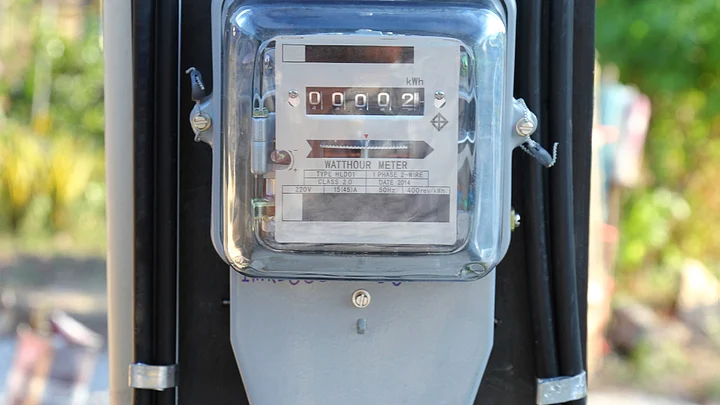Delhi's power regulator Delhi Electricity Regulatory Commission (DERC) on Wednesday, 28 March, announced a new tariff schedule for 2018-19 and said it will have an overall lowering effect on electricity bills for various categories of consumers in the national capital.
In the new tariff schedule applicable from 1 April, the DERC, though, hiked the fixed charges but reduced the per unit rates of electricity consumed.
The power bills of consumers being given subsidy may marginally rise for those using less electricity however. According to the revised charges, consumers using up to 150 units of electricity, may have to pay marginally higher.
The Delhi government gives 50 percent subsidy to consumers using up to 400 units of electricity per month.
"We have no role in deciding subsidy. It's up to the Delhi government to decide how it gives subsidy to consumers," said Delhi Electricity Regulatory Commission (DERC) member BP Singh when asked about the increased burden on subsidised consumers.
Singh, however, said that overall, the new tariff schedule will have a lowering effect on power bills of consumers.
The consumers using more than 400 units per month will be benefited more according to the new tariff schedule.
According to the new plan, existing electricity bill of domestic consumers consuming 105 units, will go down from the monthly Rs 512.48 to Rs 507.67, without adjusting subsidy.
For consumers using 525 units, the current monthly bill of Rs 3,409.56 will significantly drop to Rs 2840.75, Singh said. The monthly fixed charges have been raised for domestic consumers having up to 2 KW load from the existing Rs 20 to Rs 125.
The revised charges for other slabs are: 2-5 kw, from Rs 35 to Rs 140; 5-15 KW, from Rs 45 to Rs 175; 15-25 kw, from Rs 60 to Rs 200; and for more than 25 KW, from Rs 100 to Rs 250.
The per unit energy charges, however, have been slashed for domestic category consumers. For example: those consuming 0-200 units of electricity per month will have to pay Rs 3/kwh instead of the existing Rs 4/kwh.
For 201-400 units, consumers used to pay Rs 5.95 kwh but now will have to pay Rs 4.50/kwh; 401-800 units, Rs 7.30 kwh/Rs 6.50 kwh; 801-1200 units, Rs 8.10 kwh/Rs 7 kwh, and more than 1200 units, Rs 8.75 kwh/Rs 7.75 kwh, Singh said.
Delhi has more than 58 lakh domestic consumers, including 26.71 lakh having connections of up to 2 kw load.
The increase in fixed charges and lowering of energy charges have also been announced for, nom-domestic, industrial, DIAL, DJB and DMRC category of consumers, he said. The power tariff schedule for 2018-19 has been prepared after public hearings in which suggestions were received from different stakeholders.
"The utilities will have a revenue surplus of Rs 437 crore at the end of the financial year 2018-19," Singh said.
The domestic tariff category has been expanded by including "paying guests" at premises having domestic connections of load up to 5 kw.
BJP, Congress Slam AAP Govt for Hike in Fixed Charges
Opposition Bhartiya Janata Party (BJP) and Congress attacked the Aam Aadmi Party (AAP) government over the increase in fixed charges of power tariff.
Delhi Congress president Ajay Maken slammed the government for the "massive hike" in the fixed charges.
"(Chief Minister) Arvind Kejriwal's Aam Aadmi government inflicts massive shock on the poor power consumers of Delhi with a steep hike in the fixed charges," he said. The government's decision is benefitting power companies at the cost of poor, the Congress leader alleged.
"The massive increase in the fixed charges will put an additional burden of Rs 1,510 crores on power consumers of Delhi by way of tariff and surcharge," he said.
Delhi BJP president Manoj Tiwari alleged that the Delhi government had failed to oppose the hike. He, however, claimed credit for the BJP and consumer organisations for reduction in per unit charges of electricity.
"By not opposing the fixed charge hike before the Commission, the Kejriwal government has denied the consumers full benefit of the tariff decrease," Tiwari said.
The decreased energy charges shows that for the last three years power discoms were making "huge profits" and hence, almost Rs 6,000 crores, which this government has given in subsidy to them, is a "big scam", he alleged.
(At The Quint, we question everything. Play an active role in shaping our journalism by becoming a member today.)
